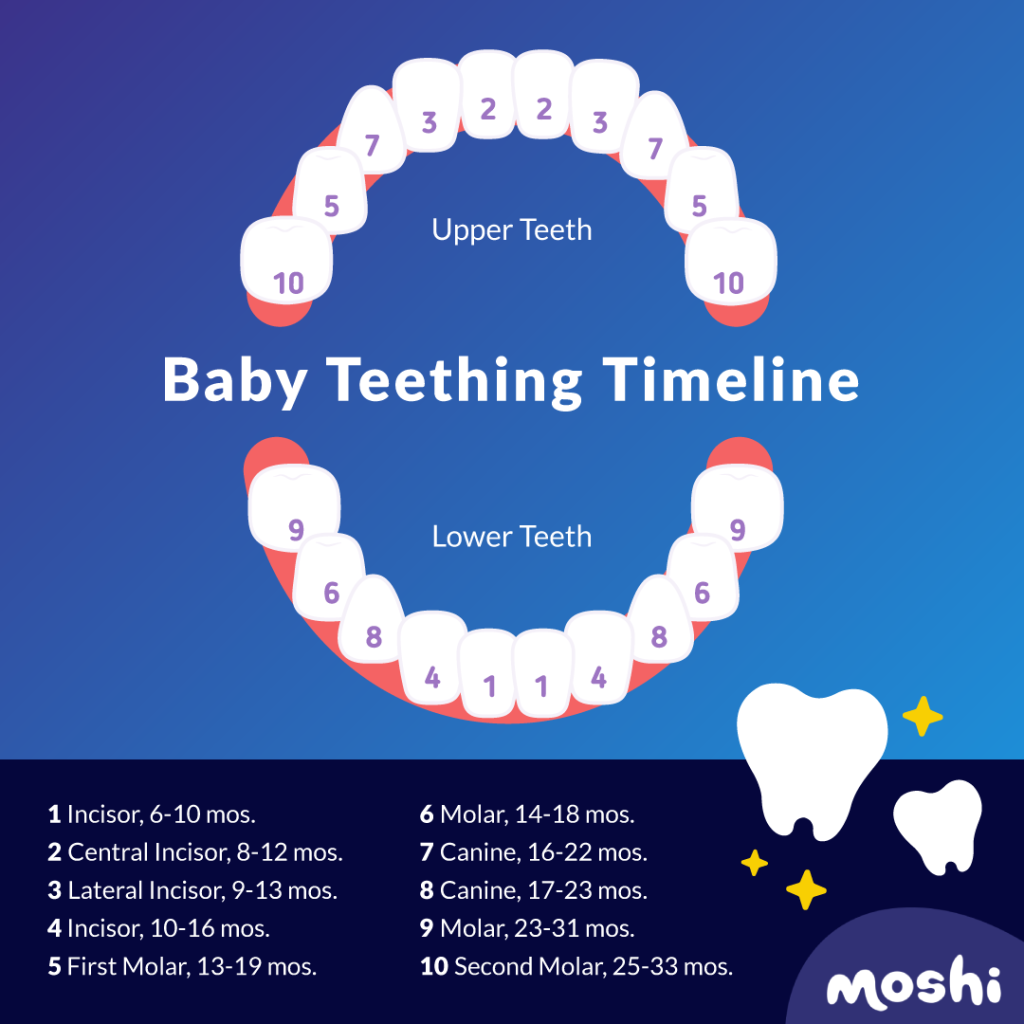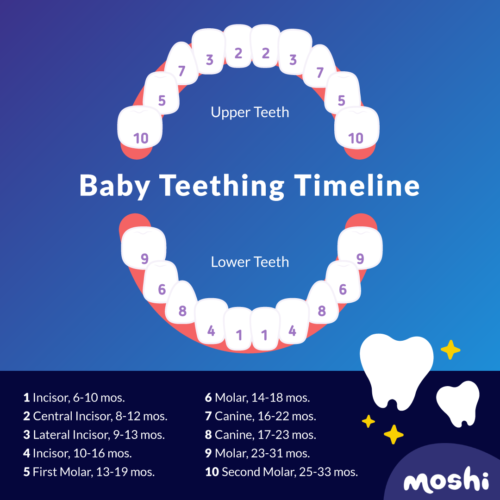
7 Natural Teething Remedies for Babies
Any parent who has gone through the teething stage with their child can tell you that it’s no walk in the park. Somewhere around 3-6 months, your little one’s teeth will break through the buds, heralding yet another milestone in your baby’s life. If your baby is having a hard time with teething, however, there are quite a few natural teething remedies you can try to alleviate pain and discomfort.
Here are some safe teething remedies to soothe your baby’s sore mouth:
It’s only temporary…
Parents should keep in mind that teething is a normal part of their baby’s development, and the good news is that it won’t last forever.
“Although it might feel like longer, on average, your little one should only be out of sorts for about eight days when teething.”
Paula McLaren, Norland Maternity Nurse NNEB RSH.
McLaren also reminds parents that pain and discomfort are par for the course, and no remedy is 100% foolproof. “Soothing a teething baby during this time can be a tall order for any parent. Don’t feel guilty that you can’t stop your baby from feeling uncomfortable all the time.” To some degree parents need to “accept that their little one is in some degree of discomfort,” says McLaren, and there’s little else they can do but offer a few soothing remedies to get over the hump.

How do you know your baby is teething?
All babies are different, and teething symptoms can vary widely. New teeth make their appearance with little to no fanfare for some babies, while others may exhibit one or any combination of the following symptoms.
Irritability
Pain and discomfort tend to make anyone cranky, and teething babies are no exception. When your baby is cutting new teeth, he/she may be crankier and clingier than usual.
Drooling
Teething tends to stimulate your baby’s salivary gland and promote drooling, so just remember to be prepared and keep plenty of bibs on hand.
Red, swollen gums
Swelling around new buds and redness are typical symptoms of teething and generally no cause for concern.
Decreased appetite
With inflamed gums causing your baby discomfort, he/she may not have much of an appetite.
Natural teething remedies for babies
Cold and frozen items
Cold and frozen items are safe and effective natural remedies to soothe the pain and discomfort that come with teething. This time-honored tradition also includes frozen fruit and frozen washcloths. If you choose to use fruit, make sure they are large enough to avoid choking, or try using mesh feeders. Mesh feeders essentially sift mashed, frozen fruits onto your baby’s gums while keeping larger pieces contained.
Mclaren also shares a clever use for an everyday item that could prove quite helpful for babies over six months or older. “One of the easiest and simplest teething remedies is to give your little one a metal teaspoon that has been chilled in the fridge (not freezer) to gnaw on.”
***It should go without saying, but parents who choose cold or frozen items to soothe their baby’s irritated gums are cautioned to remain vigilant when they offer these types of soothers to their child and never leave them unattended.
Massage
“Sometimes the best thing for teething relief is the simplest,” says McLaren. “Massaging your baby’s gums with a clean finger can offer great comfort to sore gums.” Not only does the pressure from rubbing soothe their gums, but your proximity and interaction can be quite soothing as well.
Breastfeeding
Speaking of proximity, moms who breastfeed will also find that a nursing session might be just the thing to soothe a fussy baby in the throes of teething. While you’re holding and comforting your baby, which can work wonders all by itself, the sucking can provide a bit of comfort as well. Moms should also take note that babies may be tempted to bite down in an effort to soothe itchy gums. If that happens, you may want to consider other options.
Teething toys/rings
Teething rings are another tried and true method for alleviating the pain and discomfort of teething. Remember only to chill the teethers, don’t freeze them because your baby still needs to hold them. As your baby chews on the teether and puts pressure on her gums, the cold plastic and subtle surface texture will provide some much-needed relief.
McLaren also adds that parents can vary the shape of teething rings based on which teeth their child is cutting. “For the front incisors, a more conventional teething ring is ideal for your baby to chew on, while a longer thinner design will work best for sore gums when molars start to come through later on.” Moreover, McLaren shares, “the best teething products provide pressure and texture on baby’s gums which is very soothing so aim to buy one with a range of textures and that is easy for your baby to hold herself.”
Finally, if you choose to use teething rings, be sure to check them frequently for signs of wear.
Chamomile tea
Used as a safe herbal remedy for centuries, chamomile has plenty of properties that make it an effective remedy for teething as well. Chamomile is an anti-inflammatory, it’s also a mild antimicrobial, and it has long been revered for its ability to calm rattled nerves and soothe anxiety. While delivery methods of chamomile tea can be a bit tricky for babies, parents can try freezing a bit of chamomile tea and using a mesh feeder to capitalize on two teething remedies at once.
Distract them from the pain
Small distractions can yield big results when it comes to teething pain. Enlist the help of your child’s favorite toys, or better yet, this may be a good time to introduce something new and wonderful. Remember, too, that music has a powerful calming effect, and the Moshi library has hours of lovely, light music that can help your little one take the edge off and relax.
A warm bath
If all else fails, McLaren suggests trying a warm bath. “A change of scenery will often take your little one’s mind off the pain of teething, and a nice warm bath often does the trick as it helps them relax.” It may be worth noting that the pain that comes with teething is not constant; it tends to come and go, so your baby will have some pockets of time for a reprieve. And while teething can be difficult for everyone, there are things you can do to alleviate the pain and discomfort. Of course, if your baby seems to be in distress, or he/she refuses to eat or drink for prolonged periods of time, it may be time to contact your pediatrician.
Before we go, our expert offers some final words of wisdom for this difficult stage, “One of the best things for teething babies is a parent’s comfort, so offer lots of cuddles to reassure them that they are not in this alone.”
